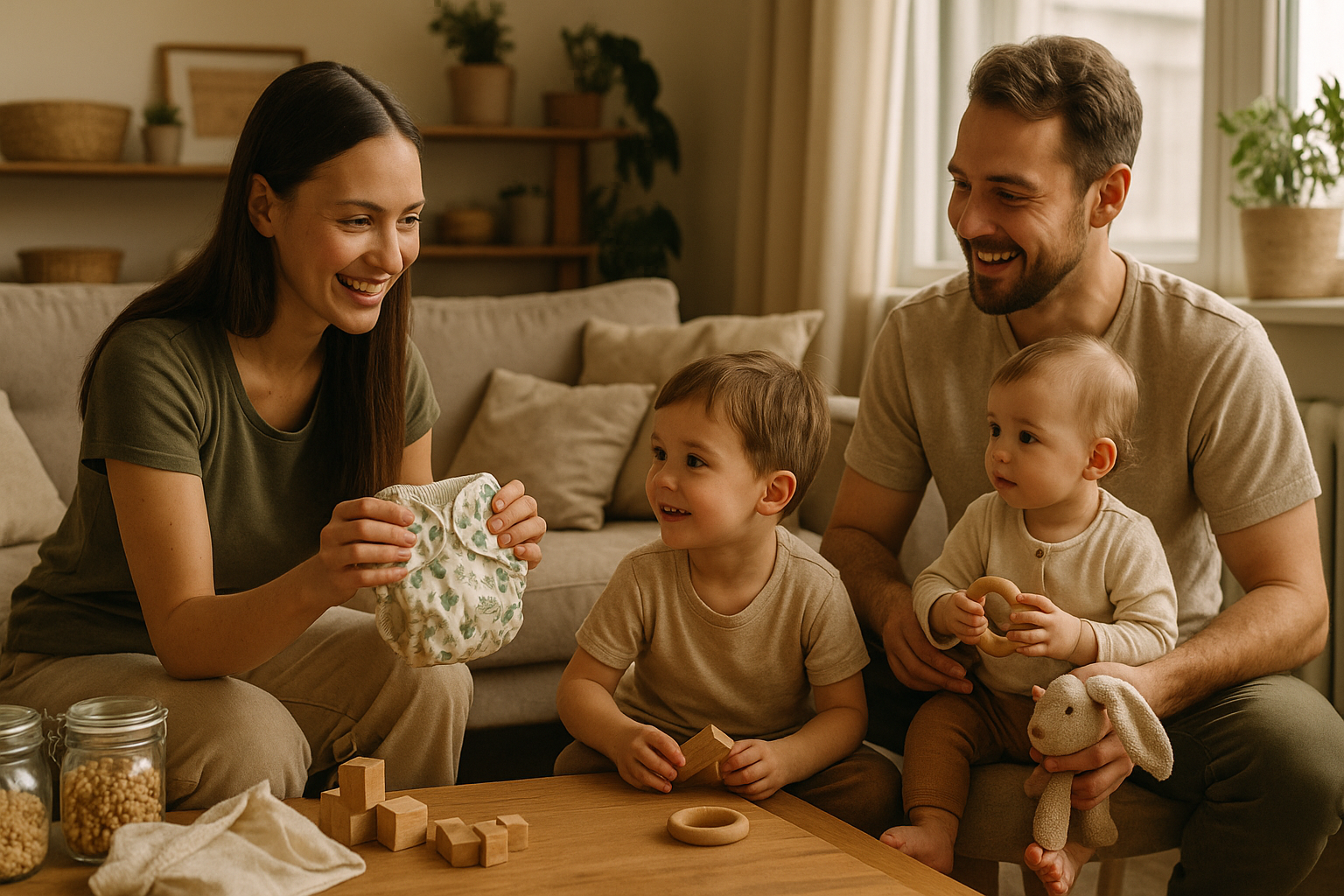Raising children sustainably doesn’t mean being perfect or doing everything yourself. It’s about making mindful choices that reduce waste, support your child’s health, and set a strong example for the next generation.
From diapers to toys, meals to school routines, parenting offers endless opportunities to introduce eco-friendly habits—without sacrificing joy or practicality.
Why Sustainable Parenting Matters
Children grow fast, and so does the environmental impact of raising them. The average child generates tons of waste by age five, mostly from:
- Disposable diapers and wipes
- Plastic toys and packaging
- Fast fashion clothing
- Processed snacks and meals
- Transportation and school supplies
But parenting sustainably doesn’t have to be overwhelming. It’s about starting small, simplifying, and making smarter choices as you go.
Choose Reusables Early On
One of the biggest waste areas in parenting is disposables. Reusables save money and reduce landfill use.
Sustainable swaps:
| Disposable | Reusable Alternative |
|---|---|
| Diapers | Cloth diapers or hybrid systems |
| Baby wipes | Washable cloth wipes |
| Bottles and cutlery | Glass or stainless steel versions |
| Nursing pads | Washable fabric pads |
| Bibs and burp cloths | Organic cotton cloths |
Start with one or two changes and grow your routine over time.
Embrace Minimalist Baby Gear
Marketing makes parents feel they need everything—but babies need far less than we’re led to believe.
Simplify your gear:
- Borrow or buy second-hand items
- Choose multi-functional products (e.g., crib that converts to toddler bed)
- Skip gimmicky gadgets and opt for durable basics
- Accept hand-me-downs from friends or family
Fewer items mean less waste and more space to enjoy parenting.
Buy Less, Choose Better for Clothing
Kids grow quickly, but their clothing doesn’t need to be fast fashion.
Sustainable clothing tips:
- Buy second-hand or join clothing swaps
- Choose natural fibers like organic cotton or wool
- Buy fewer, higher-quality basics that mix and match
- Avoid synthetic character clothing that wears out quickly
- Repurpose outgrown clothes as rags or donate them
Capsule wardrobes work for kids, too.
Feed With Sustainability in Mind
Meal prep can generate a lot of waste—but also offers great opportunities to reduce impact.
Mealtime habits:
- Use stainless steel or silicone containers
- Avoid pre-packaged or heavily processed baby foods
- Cook simple, plant-based meals with seasonal produce
- Make snacks in bulk and portion them at home
- Compost food scraps if possible
Feeding with love and intention creates lifelong habits.
Choose Toys Wisely
Toys are often made of plastic and don’t last long—but kids don’t need a mountain of toys to be happy.
Tips for better play:
- Choose open-ended, non-toxic toys (e.g., wooden blocks, art supplies)
- Focus on quality over quantity
- Rotate toys to maintain interest
- Support local makers and small brands
- Encourage imaginative play with what’s already at home
Books, puzzles, nature, and creativity often win over battery-operated distractions.
Create Sustainable Routines
Children thrive on routine—and so does the planet.
Ideas to try:
- Use a shared calendar to limit over-scheduling and travel
- Walk or bike for short errands or school
- Teach “turn off the lights” and “don’t waste water” as family mantras
- Let kids help sort recycling or compost
- Set screen-free hours with outdoor play or quiet time
Make sustainability part of the rhythm of daily life.
Celebrate Green Holidays and Birthdays
Children’s parties can be joyful without being wasteful.
Try:
- Reusable decorations (bunting, cloth tablecloths)
- Homemade treats instead of plastic-wrapped snacks
- Gifts that are handmade, pre-loved, or experience-based
- Fewer, more meaningful presents
- DIY activities like painting or planting seeds
These celebrations teach kids that fun doesn’t have to cost the Earth.
Model the Values You Want to Teach
Kids learn by watching—not just listening.
- Talk openly about nature and responsibility
- Involve them in your sustainable decisions
- Let them ask questions and find their own motivation
- Be patient and lead with encouragement, not guilt
- Show them that caring for the planet is a privilege, not a burden
You’re raising the next generation of changemakers.
Raise With Purpose
Sustainable parenting isn’t about having all the answers—it’s about asking better questions, doing your best, and building habits that reflect care, love, and intention.
Start where you are. Adjust when needed. And trust that your small efforts, done consistently, are shaping a better world—for your child and everyone else’s.
